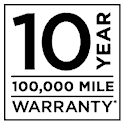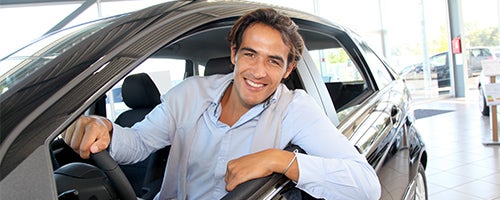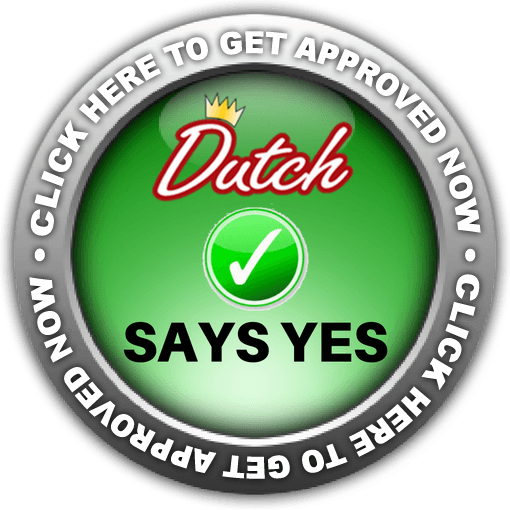Buying Vs. Leasing: Choose The Option That Fits Your Needs
Read below to learn more about financing options when purchasing a vehicle at Dutch Miller Kia of Charlotte, and be sure to contact our Finance Department at (704) 457-9656. Also, by filling out our credit application you can get pre-approved for financing at our Kia dealership in Charlotte today!
Buy Or Lease?
It's a common dilemma: buy versus lease - to buy or lease a car, which is better? Everyone who has ever considered leasing has had this question cross his or her mind.
So What Is The Answer?
The answer is - it depends. It's not possible to simply say that one is always better than the other because the answer depends on the specifics of each individual situation.
Leases and purchase loans are simply two different methods of automobile financing. One finances the use of a vehicle; the other finances the purchase of a vehicle. Each has its own benefits and drawbacks.
When making a 'lease or buy' decision you must look not only at financial comparisons but also at your own personal priorities - what's important to you?
Is having a new vehicle every two or three years with no major repair risks more important than long-term cost? Or are long term cost savings more important than lower monthly payments? Is having some ownership in your vehicle more important than low up-front costs and no down payment? Is it important to you to pay off your vehicle and be debt-free for a while, even if it means higher monthly payments for the first few years?
So we find out that making a lease-or-buy decision is not quite cut and dry. There are some things you need to consider. Let's take a look at some of these things now.
First, it's important to understand that buying and leasing are fundamentally different, not just two versions of the same thing.
Buying & Leasing Are Different:
When you buy, you pay for the entire cost of a vehicle regardless of how many miles you drive it. You typically make a down payment, pay sales taxes in cash or roll them into your loan, and pay an interest rate determined by your loan company, based on your credit history. You make your first payment a month after you sign your contract. Later, you may decide to sell or trade the vehicle for its depreciated resale value.
When you lease, you pay for only a portion of a vehicle's cost, which is the part that you "use up" during the time you're driving it. You have the option of not making a down payment, you pay sales tax only on your monthly payments (in most states), and you pay a financial rate, called money factor, which is similar to the interest on a loan. You may also be required to pay fees and possibly a security deposit that you don't pay when you buy. You make your first payment at the time you sign your contract - for the month ahead. At lease-end, you may either return the vehicle, or purchase it for its depreciated resale value.
View The Chart Below For Further Similarities & Differences:
| Lease | Loan | |
|---|---|---|
| Terms | Lease terms are usually between 2 to 4 years | Loan contracts are usually signed for 4 to 6 years. |
| Type of Vehicle | The shorter term and lower monthly payment of a lease agreement allow you to drive a new and more expensive vehicle every 2 to 4 years. | Higher monthly payments make driving a new or expensive vehicle every 2 to 4 years unpractical. |
| Ownership | Unless you decide to purchase, you must return the vehicle at the end of the lease. | You own the vehicle. |
| Up-Front Costs | Up-front costs include a monthly payment, security deposit, down payment, taxes and registration fees. If you take into consideration the total cost of the vehicle and the monthly payment you want, the sum is usually less than the up-front costs of purchasing. | Up-front costs include down payment, taxes, registration fees, and other charges. This amount is usually larger when compared to lease, especially if you want an expensive vehicle with low to moderate monthly payments. |
| Monthly Payments | Monthly payments are calculated based on the vehicle's depreciation during the lease term, rent charges, taxes, and other fees. Lease payments are usually lower than loan payments. | Monthly loan payments are based on the total amount of purchase price, plus interest charges, taxes and other fees. |
| Insurance | The insurance premium is usually higher. | The insurance premium is usually lower. |
| Early Termination | You are responsible for early termination charges, as stipulated in the lease contract. | You are responsible for paying off the loan. |
| Vehicle Return | You need to return the vehicle at the end of the lease. There may be some end-of-lease charges. | You keep the car. |
| Future Value | The lessor bears the risk of the vehicle's future market value. | If you decide to sell or trade-in the vehicle at the end of the loan term, the risk is yours. |
| Maintenance | You are responsible for the maintenance of the vehicle during the lease term. | You are responsible for the maintenance of the vehicle. |
| Mileage | Most leases impose a vehicle mileage limit. There will be extra charges if actual mileage exceeds the contract limit when you return the vehicle. | No limit. |
| Excess Wear | You might need to pay extra charges when you return the vehicle if the lessor determines that vehicle wear and tear is over the contract limit. | No limit. Like mileage, however, more wear and tear equals lower resale or trade-in value for your vehicle. |
| End of Term | At the end of lease, you can return the vehicle and walk away, lease another vehicle or purchase it for the residual value. | The vehicle is yours. |
 Warranties include 10-year/100,000-mile powertrain and 5-year/60,000-mile basic. All warranties and roadside assistance are limited. See retailer for warranty details.
Warranties include 10-year/100,000-mile powertrain and 5-year/60,000-mile basic. All warranties and roadside assistance are limited. See retailer for warranty details.




